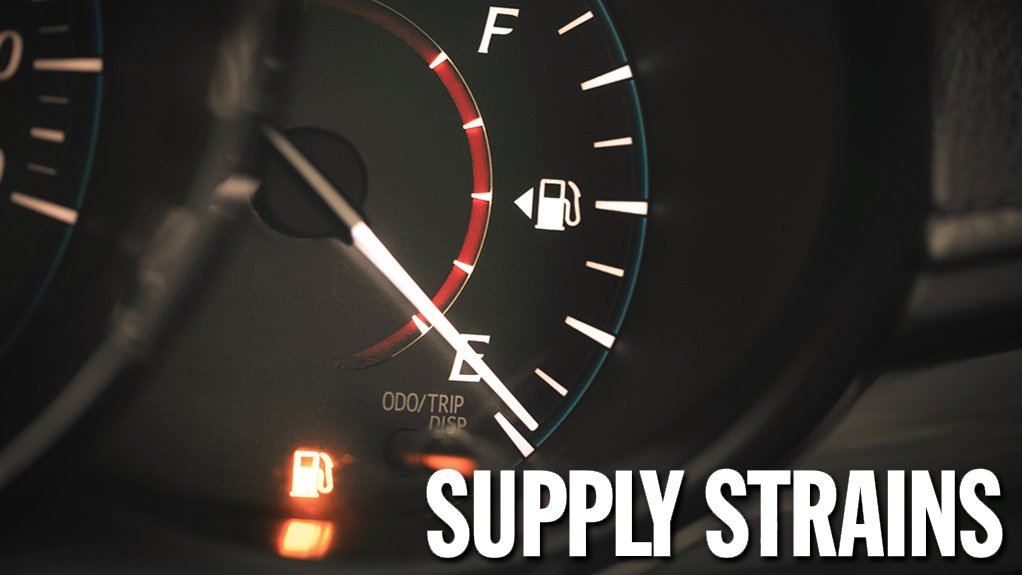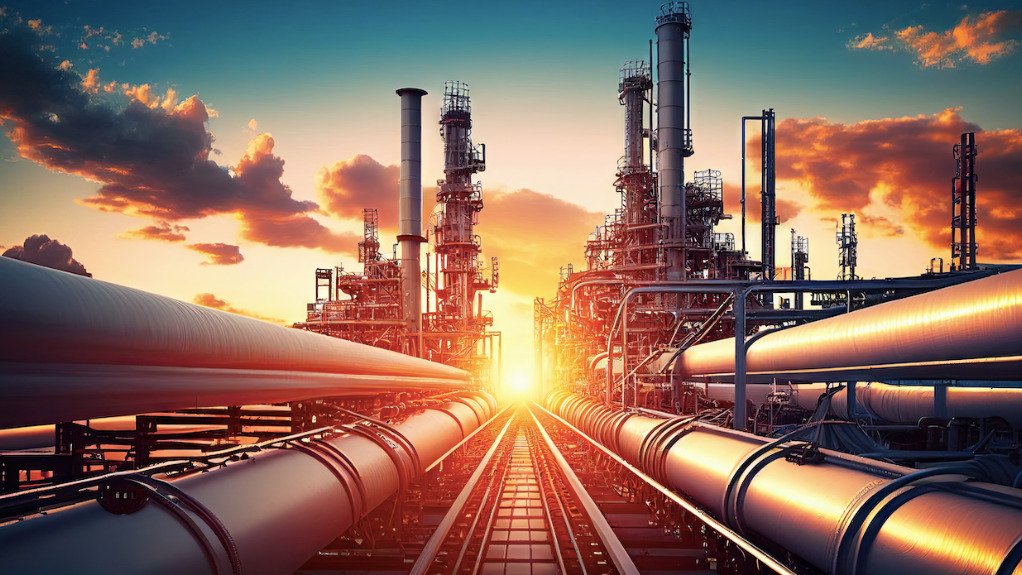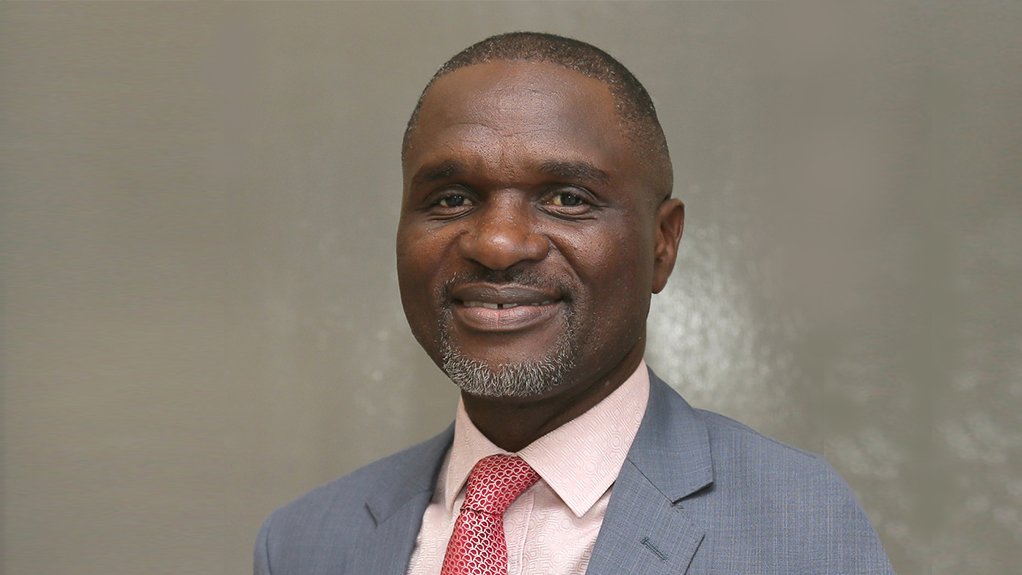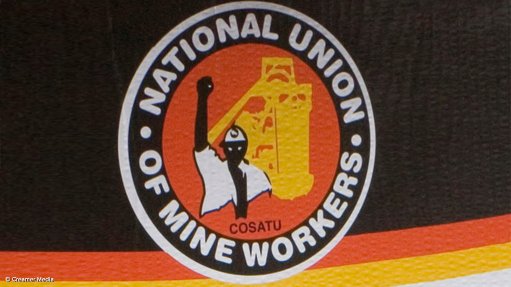Economic and regulatory constraints are putting South Africa’s fuel supply at risk




UNDER PRESSURE Urgent investment is needed to prevent fuel shortages in future
AVHAPFANI TSHIFULARO South Africa does not have functioning refineries anymore and the legislation has not caught up
South Africa’s fuel supply system is under strain, as the country continues to rely heavily on imports amid stagnating infrastructure investment and unresolved regulatory issues.
“We’re in a new world now, where supply security has risen to the top of the policy agenda, especially in this region.
"That’s something that we’ve perhaps been slightly slow to respond to, but it’s an opportunity that we now need to start thinking about quite seriously,” S&P Global VP Daniel Evans said at a fuels industry forum, hosted by the Fuel Industry Association of South Africa (FIASA) in Johannesburg last month.
Refineries Down, Imports Up
According to FIASA CEO Avhapfani Tshifularo, the domestic refining landscape shifted dramatically over the past four years, with three major refineries effectively going offline and no corresponding upgrade in logistical capacity.
The PetroSA refinery, in Mossel Bay, Western Cape, has been dormant for nearly two years, with no active production taking place. The Engen refinery, in Durban, KwaZulu-Natal, has been converted into an import terminal, with minimal manufacturing activities, while the South African Petroleum Refineries (SAPREF) refinery – once the country’s largest facility – remains out of commission.
As a result, South Africa’s reliance on imported fuel had doubled, jumping from between 20% and 30% before the Covid-19 pandemic to nearly 60% currently, Tshifularo said during the event.
“This is almost three to four years since we’ve been operating in this mode, but in terms of infrastructure, not much has changed regarding how we bring product into the country.”
Tshifularo added that the number of berths at ports remained the same, despite the significant increase in vessel traffic required to sustain the higher volume of import, with the subsequent congestion adding pressure to an already fragile system.
Further, delays caused by adverse weather frequently prevent ships from docking, which halts the transfer of fuel into the pipeline system for days at a time. The effects of these stoppages then ripple inland, affecting supply security across the country.
Key Bottlenecks
While fuel shortages have been mostly avoided, Tshifularo described the situation “as a continuous and precarious balancing act that was being barely managed behind the scenes”.
To stabilise the system and accommodate the current level of imports, he argued that urgent investment was needed across several areas. These include expanding berth and tank infrastructure, improving offloading facilities and accelerating pump rates from ports into the Transnet pipeline network.
The pipeline system had sufficient capacity to handle greater volumes, but throughput was being limited by bottlenecks at coastal facilities. Reducing the turnaround time for fuel deliveries to inland markets, such as Johannesburg, was possible because “right now, it takes roughly ten days. If we increase the pump rate, we might cut that down by four days,” he added.
However, a major barrier to unlocking investment is the lack of long-term lease agreements for port-based infrastructure. Many tank farms and offloading facilities at key terminals, particularly at Durban’s Island View precinct, are operating on month-to-month leases after long-term agreements expired more than a decade ago.
Tshifularo said this uncertainty made it difficult for operators to justify large-scale capital expenditure, estimating that R20-billion in private-sector investment could be mobilised if lease security were resolved.
To address this situation, FIASA submitted a formal request to former Transport Minister Sindisiwe Chikunga under Section 79 of the National Ports Act in May last year. The matter has since been passed on to Chikunga’s successor and current Transport Minister Barbara Creecy. This provision enables the Minister to instruct Transnet to enter into direct lease agreements with existing operators, bypassing the standard competitive bidding process under Section 56.
The infrastructure in question had been in continuous operation for over a century and had always been governed by long-term lease arrangements, but “if you don’t know whether you’ll be there long term, how do you commit billions of rands to infrastructure?” Tshifularo asked.
The industry was awaiting the outcome with urgency, but delays in resolving the issue continued to place South Africa’s fuel supply at risk, he said.
Other long-standing regulatory shortcomings are exacerbating the constraints on the industry to respond to the evolving energy landscape. Chief among these is the outdated 1964 Customs and Excise Act, which Tshifularo said was incompatible with the realities of South Africa’s current fuel supply model.
“The Act was written for a system where fuel moved from refineries to depots. But that model no longer exists. We don’t have functioning refineries anymore, and the legislation hasn’t caught up.”
Under the Act, fuel exports are permitted from only refineries or manufacturing sites, not from depots. This provision has effectively halted supply to neighbouring countries, such as Botswana, which previously received product from Transnet’s Tarlton depot, in Gauteng. With refineries offline, the only alternative has been Sasol’s Secunda operation, placing additional strain on a single source.
A similar restriction applies to jet fuel imports. Current regulations require that all imported jet fuel be routed through a refinery, rather than an import terminal. While this was manageable when refineries, such as SAPREF and National Petroleum Refiners of South Africa (Natref), were operational, the situation has become increasingly untenable.
Earlier this year, an unplanned shutdown at Natref forced the industry to reroute fuel through Mozambique’s Matola terminal, a solution that required a special temporary licence from the South African Revenue Service (Sars) and took nearly three weeks to implement.
“We were watching jet fuel stock at OR Tambo drop to dangerously low levels while we waited. That’s not a sustainable position,” Tshifularo said.
Amendments to the Customs and Excise Act that would resolve these issues permanently were expected to be finalised by October 2024, but progress has stalled. With Natref due to undergo scheduled maintenance between August and September this year, the industry faced another period of heightened risk.
However, on August 8, newswire Reuters reported that the special temporary licence issued by Sars had been extended until October 31, 2026, which will allow for the continued importation of aviation kerosene, which will be stored in licensed tanks and pumped into the multi-product pipeline for supply to OR Tambo.
The licence extension also covers the separate importation and storage of illuminating kerosene, which is mainly used in household cooking.
However, although the temporary licence has been extended, a permanent solution is required. Even with stockpiles in place, Tshifularo warned that the supply chain would remain vulnerable, given that Natref accounts for the bulk of the jet fuel supplied to OR Tambo.
Compounding the problem is the collapse of South Africa’s once-thriving bunker fuel market. Strict Sars compliance requirements have driven operators out of Algoa Bay, in the Eastern Cape, with business shifting to Mauritius and Namibia.
Tshifularo noted that this loss represented a missed economic opportunity at a time when the country could ill afford it.
Despite years of calls for investment in refining capacity, particularly in preparation for Clean Fuels II compliance by 2027, no concrete support has materialised.
However, Tshifularo confirmed that government was now considering a potential support package modelled on Australia’s pandemic-era refinery scheme, with early discussions suggesting that SAPREF and PetroSA could be revived, which the industry strongly endorsed.
Regional Capacity?
Evans noted the significant mismatch between where oil demand was growing and where oil products were being supplied from.
“What that means is that the emerging markets are going to be more dependent on trade flows and product imports than they ever have been in the past. If you’re highly import dependent, that’s going to be a very vulnerable position.”
Evans added that the lion’s share of growth in demand for oil products over the next ten years would emerge from emerging markets, such as South Africa, while the supply of refined products would increasingly be concentrated in a relatively small number of countries.
“These are the countries that have built large, efficient refining hubs and are producing at very competitive prices. India, China, the Middle East and the US are going to become the key refining centres that supply the rest of the world.”
“What that means is that emerging markets, particularly in Africa, are going to be more dependent on these global trade flows. I think the big issue is that those trade flows are becoming more exposed to geopolitical risk,” he said.
South Africa should not view itself as an import-dependent country, as it is also a critical supplier of fuel to the rest of Southern African. Any disruption to fuel availability in South Africa will, therefore, affect the Southern African Development Community.
“So, this isn’t just a national question. This is a regional question. We need to stop thinking about refining purely in terms of economics and start thinking about it in terms of strategic value.”
Refining provided optionality and resilience to more effectively manage supply disruptions.
“I’m not saying that every country in the region should have a refinery. That doesn’t make sense. But there’s a case to be made for regional refining capacity and for strategically located refineries that can supply a broader regional market.
“South Africa is the natural candidate for that. We already have the infrastructure. We already have the expertise. What we need is a policy framework that supports investment in that capacity,” he concluded.
Article Enquiry
Email Article
Save Article
Feedback
To advertise email advertising@creamermedia.co.za or click here
Press Office
Announcements
What's On
Subscribe to improve your user experience...
Option 1 (equivalent of R125 a month):
Receive a weekly copy of Creamer Media's Engineering News & Mining Weekly magazine
(print copy for those in South Africa and e-magazine for those outside of South Africa)
Receive daily email newsletters
Access to full search results
Access archive of magazine back copies
Access to Projects in Progress
Access to ONE Research Report of your choice in PDF format
Option 2 (equivalent of R375 a month):
All benefits from Option 1
PLUS
Access to Creamer Media's Research Channel Africa for ALL Research Reports, in PDF format, on various industrial and mining sectors
including Electricity; Water; Energy Transition; Hydrogen; Roads, Rail and Ports; Coal; Gold; Platinum; Battery Metals; etc.
Already a subscriber?
Forgotten your password?
Receive weekly copy of Creamer Media's Engineering News & Mining Weekly magazine (print copy for those in South Africa and e-magazine for those outside of South Africa)
➕
Recieve daily email newsletters
➕
Access to full search results
➕
Access archive of magazine back copies
➕
Access to Projects in Progress
➕
Access to ONE Research Report of your choice in PDF format
RESEARCH CHANNEL AFRICA
R4500 (equivalent of R375 a month)
SUBSCRIBEAll benefits from Option 1
➕
Access to Creamer Media's Research Channel Africa for ALL Research Reports on various industrial and mining sectors, in PDF format, including on:
Electricity
➕
Water
➕
Energy Transition
➕
Hydrogen
➕
Roads, Rail and Ports
➕
Coal
➕
Gold
➕
Platinum
➕
Battery Metals
➕
etc.
Receive all benefits from Option 1 or Option 2 delivered to numerous people at your company
➕
Multiple User names and Passwords for simultaneous log-ins
➕
Intranet integration access to all in your organisation





















